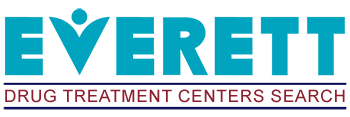Prescription Drug Rehab and Addiction in Everett, MA
Prescription drug abuse is a large and growing problem across the world, and America is certainly no exception. People develop problems with a wide array of prescription medications, most of which fall neatly into one of three categories. Opiate painkillers are the most heavily abused medications, followed by benzodiazepine sedatives and stimulants. Prescription drug problems can manifest in many ways, from drug abuse and psychological dependence through to full-blown physical addictions. Professional treatment is often needed to break the bonds of prescription drug addiction, including medical detox, rehab, and relapse prevention programs. Everett Drug Treatment Centers can connect you with the perfect program for you.
Commonly Abused Prescription Drugs
According to the National Institute on Drug Abuse (NIDA), most prescription drug abuse falls into three distinct categories. Opiates are the most widely abused substances, including the natural opium alkaloids codeine and morphine and a number of semi-synthetic compounds such as oxycodone, hydrocodone, fentanyl and many others. Taken legitimately for pain relief purposes, opiates are regularly abused for their euphoric and relaxing qualities. Sedatives, also known as tranquilizers, are the second most widely abused drug class, including common benzodiazepine medications such as Xanax and Valium. These drugs are prescribed for the treatment of sleep and anxiety disorders, and abused for their sedative and hypnotic qualities. Stimulants such as Aderall and Concerta are the third group of abused medications, with these drugs prescribed for ADHD and taken recreationally to increase energy levels.
How are Prescription Drugs Abused?
Prescription medications are abused whenever they are taken for recreational reasons, with some people also abusing stimulants to enhance physical or mental performance. Generally speaking, prescription drug misuse is said to occur whenever drugs are taken for reasons not prescribed. Common methods of abuse include increasing dosage levels, combining multiple medications, taking drugs prescribed for another person, and using a different method of administration than prescribed. For example, some drug addicts have been known to crush up tablets or pills in order to inject them or snort them. This provides a more potent effect and can be incredibly dangerous due to the use of secondary substances in some medications.
Physical vs. Psychological Dependence
Both opiates and sedatives are central nervous system (CNS) depressants, meaning that they slow down brain activity. In contrast, stimulants speed up brain activity, with different mechanisms of action leading to unique effects and withdrawal symptoms. CNS depressants are closely associated with physical-somatic withdrawal symptoms, with both opiates and benzodiazepines likely to cause physical dependence with repeated use. In contrast, CNS stimulants do not cause a physical dependence syndrome, with addicted people more likely to experience emotional and motivational withdrawal symptoms when drug use is stopped.
The existence of physical symptoms often calls for medical intervention, with medical detox and pharmacotherapy measures often initiated for CNS depressant abuse. While medications can still be used to treat stimulant abuse, patients are often treated through behavioral therapies and relapse prevention programs alone. If you or anyone you know is struggling with prescription drug abuse or addiction, let Everett Drug Treatment Centers help. Just give us a call today at (617) 553-9495 to start the recovery journey.
